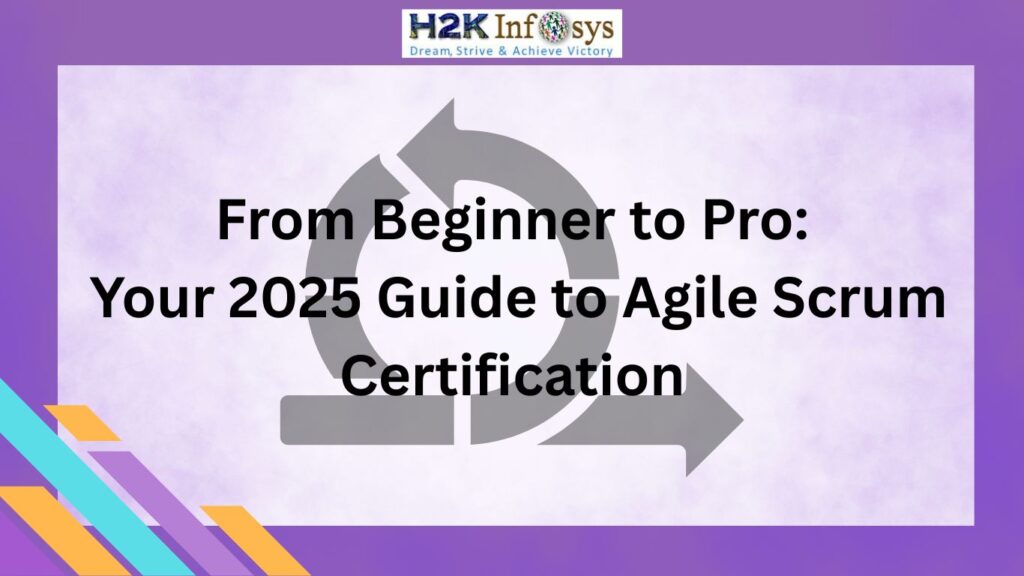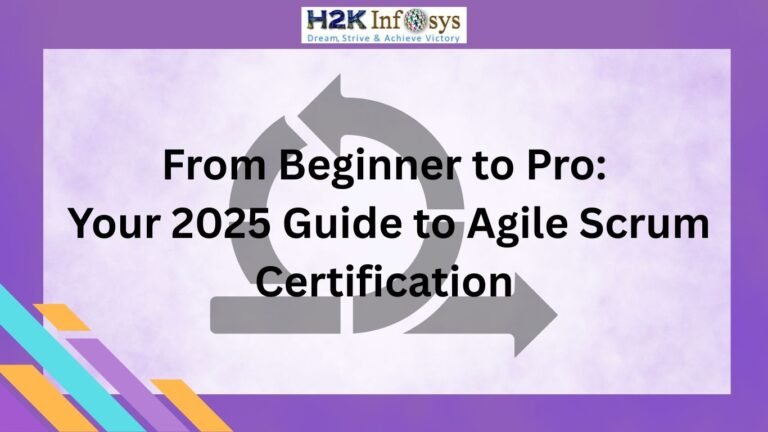Microsoft SQL Server Integration Services (SSIS) is a powerful platform for building enterprise-level data integration and transformation solutions. It is a key component of Microsoft’s SQL Server database platform, enabling users to manage complex data migration, ETL (Extract, Transform, Load) processes, and workflows. SSIS certification can open up a range of career opportunities in data management, business intelligence, and database development. If you’re considering SSIS certification or want to learn more about how it can benefit your career, this guide will provide you with all the details you need.
What is SSIS?
Before diving into the specifics of SSIS certification, it’s essential to understand what SSIS is. Microsoft SQL Server Integration Services is a platform that helps organizations solve complex business problems by automating data movement and transformation processes. SSIS is typically used for:
- Data Integration: Combining data from different sources such as databases, files, and services into a central data warehouse.
- ETL (Extract, Transform, Load): SSIS is often used to extract data from various sources, transform it according to business rules, and load it into a destination like a data warehouse.
- Workflow Automation: SSIS allows the automation of repetitive tasks such as backups, data transformations, and database maintenance tasks.
SSIS is a critical tool for businesses that manage large amounts of data and rely on streamlined workflows for their operations.
Why Pursue SSIS Certification?
1. Career Advancement
SSIS certification is highly valued in the data and business intelligence industry. With data integration and management becoming a central aspect of business operations, SSIS-certified professionals are in high demand. Certification serves as a formal recognition of your skills, making you more attractive to employers and opening up various career paths, including roles like Data Integration Engineer, SQL Developer, and Business Intelligence Analyst.
2. Higher Salary Potential
Certification often translates to better salary prospects. On average, SSIS-certified professionals can command salaries ranging from $80,000 to over $120,000 per year, depending on their level of experience and location. The certification sets you apart from non-certified peers and shows employers that you have the expertise to manage complex data integration projects.
3. Versatile Application
SSIS is used across industries, including healthcare, finance, retail, and technology, to manage data flow and integration. Certification equips you with the skills to work in various domains, making it a versatile addition to your professional toolkit.
4. Improved Technical Skills
While preparing for SSIS certification, you will deepen your understanding of SQL Server and gain hands-on experience in designing, implementing, and managing SSIS packages. This practical knowledge will enhance your problem-solving skills and make you more efficient at managing ETL and data integration tasks in real-world scenarios.
Key Features of SSIS
1. Control Flow
SSIS allows the creation of complex workflows by providing tools for defining control flow. Control flow manages the order in which different operations are executed within a package. You can use tasks, containers, and precedence constraints to control the flow of execution.
2. Data Flow
The data flow engine in SSIS is used to extract, transform, and load data between different sources and destinations. It supports a wide range of data transformations, including data conversion, sorting, merging, and aggregating.
3. Event Handling
SSIS provides advanced event handling capabilities, allowing users to handle different events like errors, warnings, or information messages that occur during package execution. This feature is useful for improving the robustness and reliability of your SSIS packages.
4. Logging and Debugging
SSIS has built-in logging and debugging tools, which allow you to monitor and troubleshoot SSIS packages during and after their execution. This feature is essential for maintaining data integrity and ensuring that workflows run smoothly.
SSIS Certification Path
There isn’t a specific SSIS certification, but SSIS-related content is covered within broader Microsoft certification paths, particularly those focused on SQL Server and Data Management. To get certified in SSIS, you would typically pursue certifications that include SQL Server and business intelligence skills.
1. Microsoft Certified: Azure Data Engineer Associate
This certification focuses on data integration, ETL processes, and managing data solutions in Microsoft Azure. While this certification covers a broader scope than just SSIS, it includes relevant skills for managing data pipelines, ETL operations, and database solutions—key components of SSIS.
- Skills Covered:
- Data ingestion and transformation using SQL Server and Azure tools
- Data integration processes and ETL
- Managing data storage and securing data
- Exam: DP-203: Data Engineering on Microsoft Azure
- Cost: Approximately $165 for the exam
2. Microsoft Certified: Data Analyst Associate
The Data Analyst certification is useful if you want to use SSIS to create data pipelines and support business intelligence reporting. This certification focuses more on analyzing and visualizing data, which can complement your SSIS skills for business intelligence solutions.
- Skills Covered:
- Data modeling and cleansing
- Implementing and managing data integration
- Creating reports and dashboards using Microsoft Power BI and SQL Server
- Exam: DA-100: Analyzing Data with Microsoft Power BI
- Cost: Approximately $165 for the exam
3. Microsoft Certified: Azure Solutions Architect Expert
For professionals looking to master not only SSIS but also advanced cloud-based data integration processes, the Azure Solutions Architect Expert certification offers a comprehensive path. It covers a range of data management tools, including SQL Server Integration Services, and teaches how to design data integration and transformation solutions in the cloud.
- Skills Covered:
- Designing infrastructure and managing data solutions
- Data integration using cloud services
- Managing data storage and security
- Exams: AZ-303 and AZ-304
- Cost: Approximately $165 per exam
Certification Prerequisites
Before pursuing SSIS-related certifications, it is recommended to have experience working with SQL Server, data integration, and ETL processes. Some certifications also require passing foundational exams, such as Microsoft Certified: Azure Fundamentals, before moving on to more advanced certifications.
Preparing for SSIS Certification
1. Hands-On Experience
To pass any SSIS-related certification exam, hands-on experience is crucial. You should be comfortable working with SQL Server, building SSIS packages, and handling data integration projects. You can practice these skills by working on real-world projects or using virtual labs that simulate complex data scenarios.
2. Study Materials
There are several study materials available for SSIS certification, including official Microsoft guides, online courses, and SSIS-specific books. Some popular resources include:
- Microsoft Learn: A free resource offering in-depth modules on SQL Server and SSIS.
- SSIS Tutorials and Labs: Several online platforms offer interactive SSIS labs where you can build ETL processes and practice data transformation.
- SSIS Books: Books like Professional Microsoft SQL Server 2016 Integration Services are excellent for in-depth learning.
3. Practice Exams
Taking practice exams is a great way to assess your knowledge and identify areas where you need further study. Microsoft offers official practice exams, and several third-party websites also provide mock exams for SQL Server certifications.
Exam Details and Costs
The cost for each Microsoft certification exam is approximately $165. However, prices may vary depending on your location. Some training providers offer bundled packages that include training materials, practice exams, and exam vouchers at discounted rates.
In addition to the exam fees, you may need to invest in study materials, virtual labs, or training courses. Self-study can be more affordable, but formal instructor-led courses can range from $500 to $2,000, depending on the provider.
Career Opportunities with SSIS Certification
Obtaining an SSIS-related certification can significantly enhance your career prospects in various roles, including:
- SQL Developer: Specializing in SQL Server and SSIS for managing databases and data integration tasks.
- Data Integration Engineer: Focusing on ETL processes and automating data pipelines.
- Business Intelligence Analyst: Using SSIS to support data-driven decision-making in organizations.
- Database Administrator: Managing and optimizing database systems that use SSIS for data migration and transformation.
Conclusion
Microsoft SQL Server Integration Services (SSIS) certification can be a valuable asset in today’s data-driven business environment. It equips you with essential skills for managing data integration, ETL processes, and workflow automation. Whether you’re aiming to become a data engineer, SQL developer, or business intelligence professional, an SSIS-related certification can open doors to lucrative career opportunities.
By understanding the certification paths, preparing with the right resources, and gaining hands-on experience, you can become a certified professional capable of leveraging SSIS to solve complex data challenges in a variety of industries.






























One Response